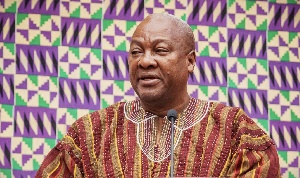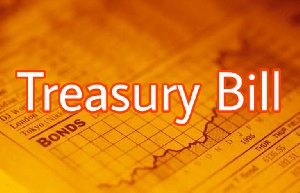- Home - News
- Elections 2024
- News Archive
- Crime & Punishment
- Politics
- Regional
- Editorial
- Health
- Ghanaians Abroad
- Tabloid
- Africa
- Religion
- Photo Archives
- Press Release
General News of Friday, 4 April 2025
Source: www.ghanawebbers.com
Minority criticises government over silence on US tariffs, warns of missed AfCFTA opportunity
The Minority Caucus in Parliament has sharply criticized the government. They are concerned about the government's slow response to a new 10% tariff on Ghanaian exports from the United States.
The Caucus warns that Ghana may be caught off guard in a trade war. They believe this is due to poor prioritization of the African Continental Free Trade Area (AfCFTA).
In a statement signed by Michael Okeyer Baafi, they accused the NDC administration of having no response to the tariff. The statement claims that the Mahama administration ignored strategies that could protect Ghana from trade shocks.
The Minority stated, “We have not seen clear policy direction on exports.” They noted that the government has downplayed AfCFTA's importance and abandoned successful export strategies from the previous NPP administration.
The 10% tariff was announced by former U.S. President Donald Trump. The Minority described it as part of a “sweeping tariff escalation” against several African nations. This move threatens Ghana’s benefits under the African Growth and Opportunity Act (AGOA). AGOA currently allows over 6,700 Ghanaian products duty-free access to the U.S. market.
AGOA is set to expire in September 2025 unless renewed. Sectors at risk include apparel, cocoa derivatives, and yam exports—all benefiting from AGOA. The apparel industry alone employs over 5,000 young Ghanaians.
“This is not just a trade concern—it is a potential employment crisis,” warned the Minority. They emphasized that AfCFTA aims to reduce Ghana’s reliance on unstable external markets.
Under the previous NPP government, AfCFTA initiatives helped local manufacturers enter regional markets. Programs like One District, One Factory (1D1F) boosted exports of iron rods, ceramics, and plastics across ECOWAS.
However, under the current administration, AfCFTA has received minimal budget allocation and attention. The statement argued that there are no specialized programs for exporters or measures to diversify markets.
The Minority called for urgent action from the government on several fronts:
1. Immediate funding for the AfCFTA Action Plan.
2. Diplomatic engagement with the U.S. for clarity on tariffs.
3. Direct support for exporters through financing and training.
4. A coordinated national export policy to prevent future vulnerabilities.
Their warning comes as fears rise about long-term repercussions for Ghana's global competitiveness and trade goals.
“This is time for bold policy choices—not silence,” declared the Minority. “Ghana cannot afford to lose ground both in Washington and Accra.”











